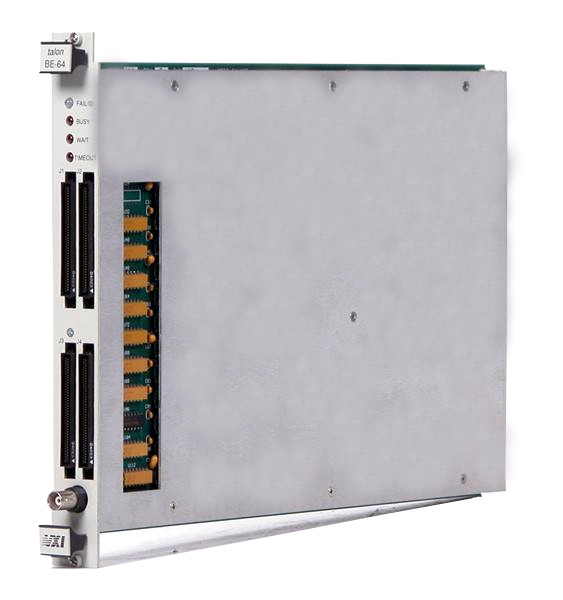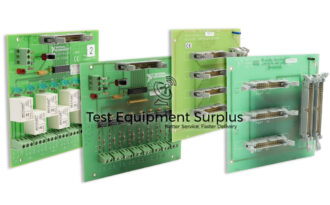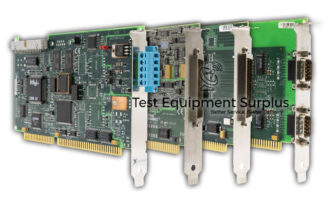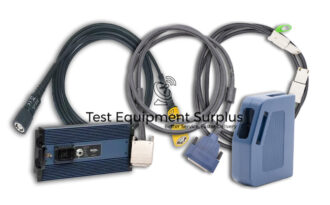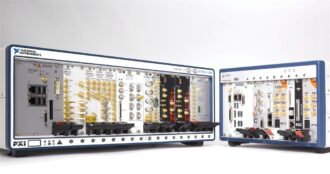Description
The LV-222-555-000 is an Interface Module manufactured by Astronics Ballard Technology/National Instruments, identified by the part number 784800-01 from National Instruments. This module is designed to seamlessly integrate with the Astronics OmniBus2 Product Portfolio and can support up to two interface modules per carrier module.
It is engineered specifically for use with the MIL-STD-1553 communication protocol, which is a standard for avionics databuses, making it suitable for the design and testing of such systems. The module offers expansion options including the addition of an ARINC 429 interface module or more MIL-STD-1553 modules, providing flexibility and scalability to meet various application needs.
Equipped with error detection and generation features, the LV-222-555-000 stands out as a reliable and versatile solution for interfacing between PXI systems and MIL-STD-1553 databuses, ensuring robust performance in critical avionics applications.
| Attribute | Description |
|---|---|
| Manufacturer | Astronics Ballard Technology/National Instruments |
| Part Number | LV-222-555-000 |
| National Instruments Part Number | 784800-01 |
| Type | Interface Module |
| Compatible With | Astronics OmniBus2 Product Portfolio |
| Interface Modules Supported | Up to two per carrier module |
| Communication Protocol | MIL-STD-1553 |
| Application | Design and testing of avionics databuses |
| Expansion Options | ARINC 429 interface module, additional MIL-STD-1553 modules |
| Features | Error detection and generation |
Question 1: What capabilities does the Interface Module LV-222-555-000 offer for avionics system design and testing in terms of expansion options and reliability features?
Answer 1: The LV-222-555-000 Interface Module offers expansion options that include the addition of an ARINC 429 interface module or more MIL-STD-1553 modules to enhance its flexibility and scalability for different application needs.
Question 2: What specific expansion options does the LV-222-555-000 Interface Module offer to enhance its flexibility and scalability for different application needs?
Answer 2: The LV-222-555-000 Interface Module, produced by Astronics Ballard Technology/National Instruments, is designed to integrate with the Astronics OmniBus2 Product Portfolio for avionics databus design and testing within the MIL-STD-1553 communication protocol, accommodating two modules per carrier and offering expansion through additional ARINC 429 or MIL-STD-1553 modules, while providing error detection and generation features to ensure reliable performance in critical avionics applications.
Question 3: What are the capabilities and intended applications of the LV-222-555-000 Interface Module manufactured by Astronics Ballard Technology/National Instruments in the context of MIL-STD-1553 avionics databuses?
Answer 3: The Interface Module LV-222-555-000 offers expansion options such as the addition of ARINC 429 interface modules or extra MIL-STD-1553 modules, along with error detection and generation features, thereby ensuring reliable and scalable solutions for avionics system design and testing.
Question 4: What are the capabilities and compatibility features of the Interface Module LV-222-555-000 manufactured by Astronics Ballard Technology/National Instruments for avionics databuses, particularly the MIL-STD-1553 protocol?
Answer 4: The Interface Module LV-222-555-000, produced by Astronics Ballard Technology/National Instruments, is compatible with the Astronics OmniBus2 Product Portfolio and can support two interface modules per carrier module; it is specifically engineered for the MIL-STD-1553 avionics databus protocol, suitable for the design and testing of such systems, and offers expansion options like adding an ARINC 429 interface or additional MIL-STD-1553 modules, while also featuring error detection
Question 5: What capabilities make the LV-222-555-000 Interface Module a suitable choice for design and testing in systems that utilize the MIL-STD-1553 communication protocol?
Answer 5: The LV-222-555-000 Interface Module is a suitable choice for design and testing in systems utilizing the MIL-STD-1553 communication protocol due to its seamless integration with the Astronics OmniBus2 Product Portfolio, ability to support up to two interface modules per carrier module, and the flexibility it offers through expansion options such as adding ARINC 429 or additional MIL-STD-1553 modules, coupled with its error detection and generation features that ensure reliable and robust performance in critical av

